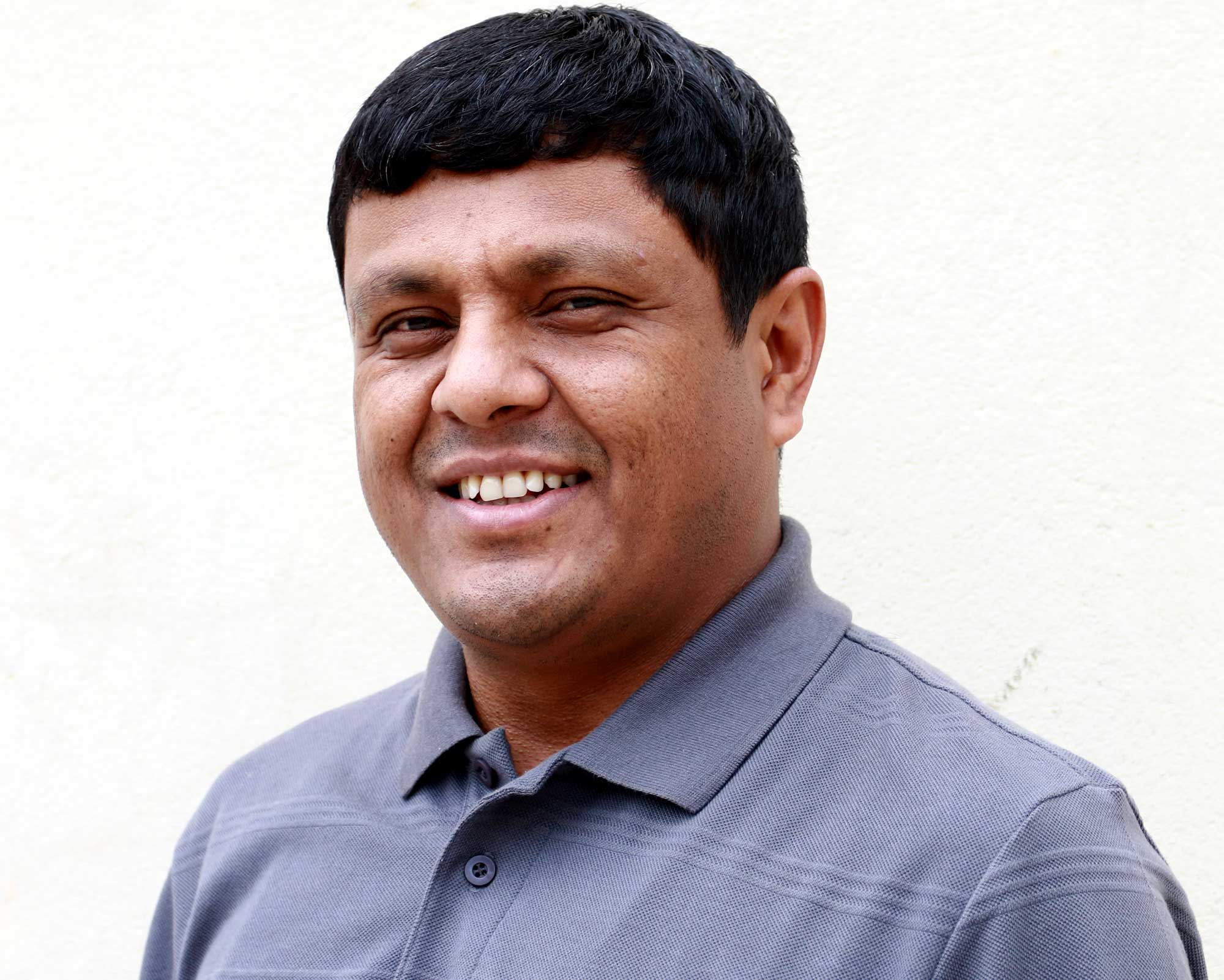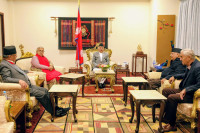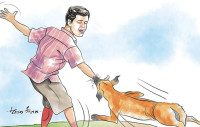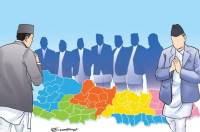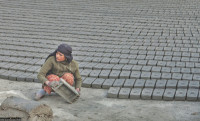Opinion
Guerrillas from the mist
Former Maoist combatants’ grievances should be addressed before their nonviolent protest turns into violent action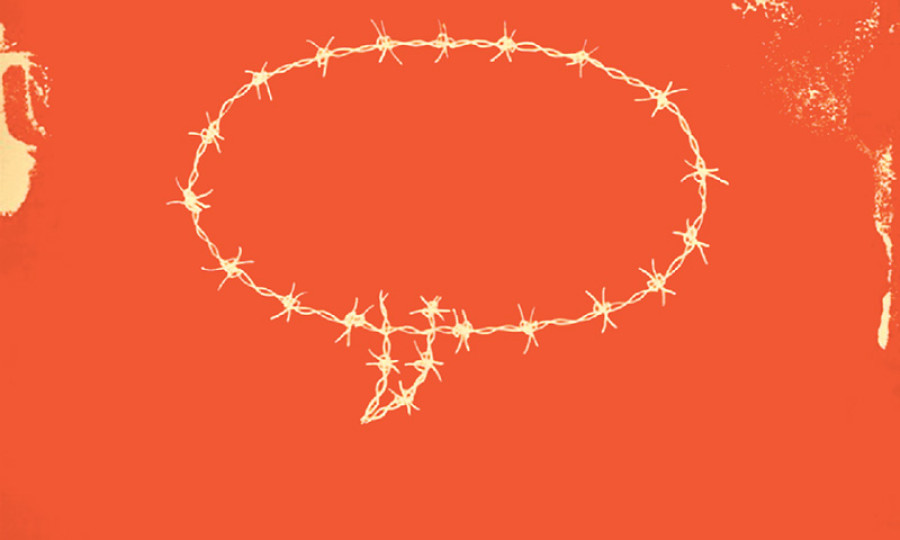
Ram Kumar Bhandari
This month, Nepal is marking the 10th anniversary of the signing of the Comprehensive Peace Agreement (CPA) that ended the decade-long bloody Maoist conflict. Prachanda, one of the signers of the pact, now heads a coalition government formed with the Maoists’ former adversary the Nepali Congress. Thus ensconced in the seat of power, the Maoist leadership has forgotten, among other things, the families of the disappeared, martyrs, the injured and nameless combatants. They feel that the Maoist leadership has not only betrayed them, but also dishonoured their dignity, disregarded the peace process and neglected their history of sacrifice. Recently, ex-combatants mounted a symbolic demonstration and locked the Maoist headquarters demanding their socioeconomic reintegration when the Maoist supremo is head of government. It would be good to resolve their grievances before their nonviolent protest turns into violent action.
Their key demands are that the government abandon the term ‘disqualified’ and honour the discharged ex-People’s Liberation Army combatants as ‘republican fighters’, take responsibility for the abuse of child rights committed by recruiting child soldiers, ensure child rights and justice based on domestic and international principles and address the practical concerns of youth combatants based on the principles of social justice. They also want that medical treatment, psychosocial counselling and special support schemes be provided to the injured, mentally ill, traumatised and disabled members of the former PLA besides implementing the Cabinet decision to give them monetary support.
Forgotten fighters
The stigma attached to the ‘disqualified’ label continues to torture them. ‘Disqualified’ fighters also do not receive the financial benefits provided to those taking ‘voluntary retirement’ who each took home Rs500,000 or more. Reintegration is an intrinsic part of peace-building efforts, and it can complement other activities in seeking to ensure that ex-combatants achieve peaceful and sustainable livelihoods. There were no policies or programmes to help discharged combatants sustain themselves economically and gain social and political acceptance.
Most PLA fighters had left their lives of rural poverty and joined the Maoist movement as it gave them hope. They saw it as a way out of poverty and social exclusion that they faced in their communities. So the challenge of reintegration is not to return ex-combatants to the poverty they were fleeing, but to ideally provide alternatives to the conditions that ignited the conflict in the first place. If the authorities do not take the demands of the ex-combatants seriously and address the challenges they are facing, there may be a new and more violent conflict. To prevent something like that from happening, the state and the parties must listen to the voices of the ex-combatants who are trying to rebuild their lives as civilians, and examine how the measures taken to help them have aided or hindered their reintegration economically and socially.
In 2012, the ‘disqualified’ ex-combatants formed a central struggle committee named Discharged PLA Nepal to lead and represent their members at the national level. The committee has brought together hundreds of former fighters and conducted a series of protests to press the government to remove the term ‘disqualified’, restore their dignity and provide a support package. They have used non-violent strategies to create pressure on the authorities, political parties and donors. They have also submitted memoranda to the Ministry of Peace and Reconstruction, several prime ministers, UN offices and the UCPN (Maoist).
At the peak of their movement in 2012, when the UCPN (Maoist) was leading the government, the struggle committee demonstrated and locked the Maoist party headquarters in Kathmandu for 56 days. Finally, the Maoist leadership in coordination with the government offered a deal. The Ministry of Peace and Reconstruction agreed to pay for the struggle committee’s transportation and food. Additionally, the Cabinet agreed to provide Rs200,000 to each disqualified PLA member. This demonstrates the potential immediate benefits of such mobilisation and direct action. Shortly afterwards, the Maoist party split, and the struggle committee was also divided. Most of the members ultimately went to the Middle East to work, demonstrating the continuing priority of the young ex-PLA fighters to seek a decent livelihood. As a result, the movement lost steam and became distant from the national debate.
Renewed struggle
The struggle committee has recently been reformed and reactivated. The new committee is working outside any political party structure or ideology. While this is the only route to forging an independent voice that is not dependent on party priorities, it is a challenging task for the former combatants who have been deprived of education and face severe livelihood challenges. They have received almost no support from civil society or other organisations. This reflects the continued stigma that ex-PLA fighters suffer even after they have organised into a non-political solidarity organisation and redefined themselves as a new civil society front and collaborated with various rights agencies and victims movements.
The former PLA members have also made efforts to portray their struggle as a human rights issue and called themselves ‘ex-child soldiers’. They are advocating for their rights as victims of rights violations and for punishment of the perpetrators according to international norms. This represents an impressive evolution from a campaign based on resentment of their unfair treatment after demobilisation to one that is rights-based and acknowledges their identity as victims of rights violations as underage combatants.
Bhandari is the general secretary of Conflict Victims Common Platform




 8.12°C Kathmandu
8.12°C Kathmandu